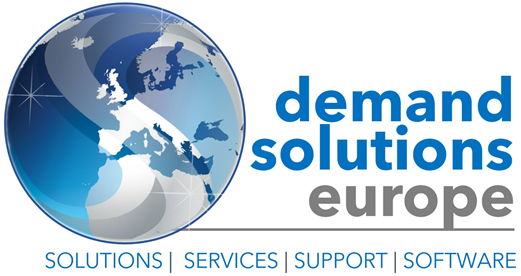
Key Skills of the Dynamic Supply Chain Professional
No matter where you look, there’s no shortage of online articles and guides that talk about the key skills every supply chain professional needs to have.
More often than not, this advice is wishy-washy at best.
That’s not a dig at the people providing this advice, it’s just a comment on the type of tips you find. Mostly, it’s very general. People provide generic advice and tell you to learn fairly basic skills that any professional should acquire.
The problem is that none of these things specifically relate to the supply chain professional.
So, let’s change this! In this blog, we’ll explore some of the key skills a dynamic supply chain worker must have in today’s environment. Additionally, these skills will become even more valuable in the future!
Lateral thinking
The dictionary definition of lateral thinking is that it’s a way of solving a problem by thinking about it in a different and original way and not using traditional or expected methods. In simpler terms, it’s about taking a more creative approach to problem-solving. Instead of doing what everyone else is doing, look a bit deeper into situations and come up with ideas that are more left-field than usual. Often, this is how you differentiate yourself from other professionals in your field.
How can we apply this to the modern-day supply chain professional? Naturally, you’re dealing with so many different parties, all of which want pretty much the same thing; the lowest costs, but the best results. As an example, you’re working with a buyer who is looking for a reliable supplier of raw materials to use for their new product. They have a strict budget, but the supplier won’t budge on their asking price, which is too expensive for the buyer. You can use lateral thinking to identify an answer to this conundrum. Perhaps you realize that the buyer has external contacts that can help the supplier get even more business. As such, you suggest that the supplier offers a discounted rate in exchange for some business contacts. Everyone’s happy, and the problem is solved!
Lateral thinking is also key when it comes to demand planning and forecasting. To accurately predict the demands of your supply chain, you have to think outside the box.
Emotional intelligence
Emotional intelligence is the ability to stay in control of your emotions. Not only that, but you know how to control and monitor other people’s feelings and emotions as well. Consequently, you’re able to create strong relationships with people, and you don’t allow your emotions to blind your decision-making.
It’s proven that employees with emotional intelligence are a benefit to businesses. In the supply chain world, how would you utilize this skill? It’s simple, your job is almost all about establishing and managing relationships. You need to know what keeps all of your contacts happy within the supply chain. Figure out what irritates them, learn how to play on their emotions to generate positive outcomes, and empathize with them when they need it.
Accountability
Most people don’t see accountability as a skill, but it’s actually one of the most valuable tools in your arsenal. The ability to hold your hands up and accept responsibility for different actions is highly important in the supply chain world. One slight error can have a snowball effect that impacts so many people and businesses that depend on you. When this happens, it’s easy to try and shy away from responsibility.
Instead, you need to explain the situation and talk to your suppliers or outbound and inbound teams and say what went wrong. Own up to any mistakes, detail what you’re doing to rectify them, and you will gain so much more respect. People hate it when they know that somebody has messed up, but that individual won’t admit to it.
The life of a dynamic supply chain professional means you’re working with technology all the time these days. A lot of your tasks are handled by automated machines, which you think takes any blame off your shoulders. If a computer makes an error, then it’s the software’s fault, not yours – right? Wrong, you’re still accountable because you chose to use the software and you still promised a service to your clients.
Adaptability
This is perhaps most relevant for the situation many supply chain professionals find themselves in. We’re in the middle of a serious COVID-19 pandemic, and businesses are temporarily closing all over the world. As such, you may find yourself working at home for the first time in your life. Now, you need to be able to adapt to this situation and find ways to continue providing your service from home.
Utilize cloud software more than ever before to stay connected to different people throughout the supply chain. Figure out how to adapt your communication methods to keep everyone in the loop. The chances are you’ll be working from home for a good few weeks – maybe even months – so, you have to become more adaptable to succeed.
Overall, you may be surprised by these key skills. Some of you were expecting more flashy skills than this, but these are the things that will carry you through your career as a supply chain professional. Develop them now, and you’ll have an edge over your rivals in this industry while setting yourself up for further success in the future.


